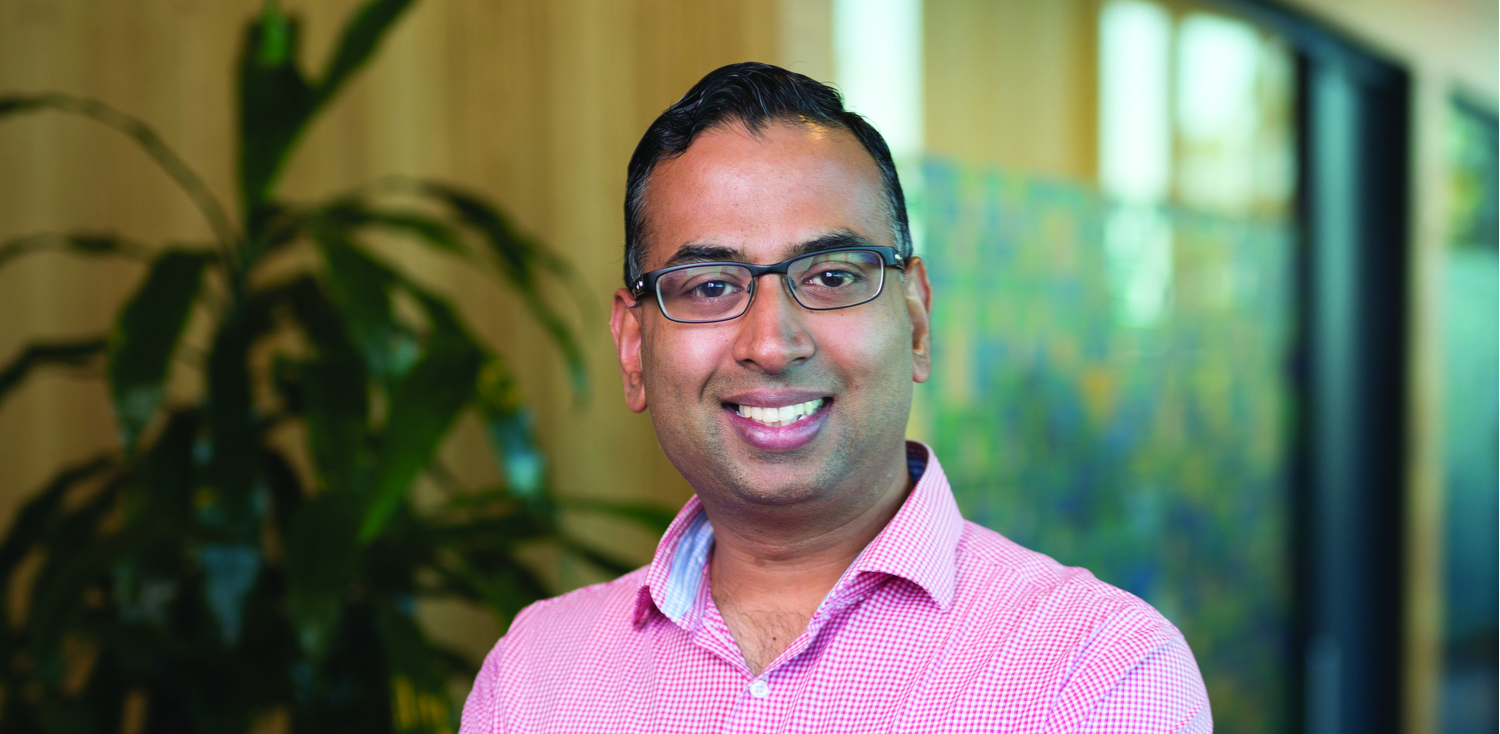By Emma Mulholland
Many of us don’t realise that, as we go about our days, we leave long data trails behind us. When we use our smartphone, for example, not only is our location and interlocutor recorded, even the way we hold the headset is. Is that a bad thing? It can be, says data innovator Shashank Pawar MIML. But in the right hands, he says, our data can help us take control of our financial future.
Pawar has worked at Microsoft for 19 years, where he oversees healthcare and banking portfolios. His mission is to bring back customer service – albeit in a modern, digital way. “I think about my mum and dad’s experience of banking,” he says. “They used to deal with one person at a local branch who knew everything about their lifestyle. He knew how old their kids were and would say, ‘Why don’t you set up a college fund?’ There was a level of service that we’re not enjoying today, even though the banks probably have more information about their customers than they’ve ever had.”
A computer science graduate, Pawar helps organisations store and protect customer data and put it to work (under Australian legislation, companies keeping information must have customer consent).
“I help my clients get the most out of the biggest asset they have within their organisation, which is data,” Pawar says. “When a person walks into a bank, essentially everything is recorded: the time it takes to solve their enquiry, the nature of the transaction and the money involved. That data becomes a competitive difference: it’s something you know about your customer base that your competitor doesn’t.”
And that’s where artificial intelligence comes in. Pawar develops algorithms that can sift through millions of these recorded interactions, establish patterns and make predictions about each customer. In years gone by, it could take up to a year to set up an algorithm; with cloud computing, Pawar can now run tests in a matter of days.
He hopes to create the banking equivalent of Spotify, a music-streaming service that uses machine learning – based on tracks played by the listener and their friends – to suggest new playlists. “Why can’t we do that with financial advice as well?” Pawar asks. “The bank knows my peers’ spending habits so if I’m aiming to save a large amount of money, it could tell me what other people my age, who managed to reach that goal, did – it might be shopping at alternative grocery suppliers.”
Pawar imagines a future where no-one will have to wait in line at the bank. Instead, organisations will analyse data and predict their customers’ needs. “Then we can use digital technology to text them the solution,” he says. “Or the next time they pop in to a branch, a friendly face will come and say, ‘This is what you’ve been looking for.’ The interaction is seamless – we seem to know about the customer and can give them personalised service. That’s the vision.”


